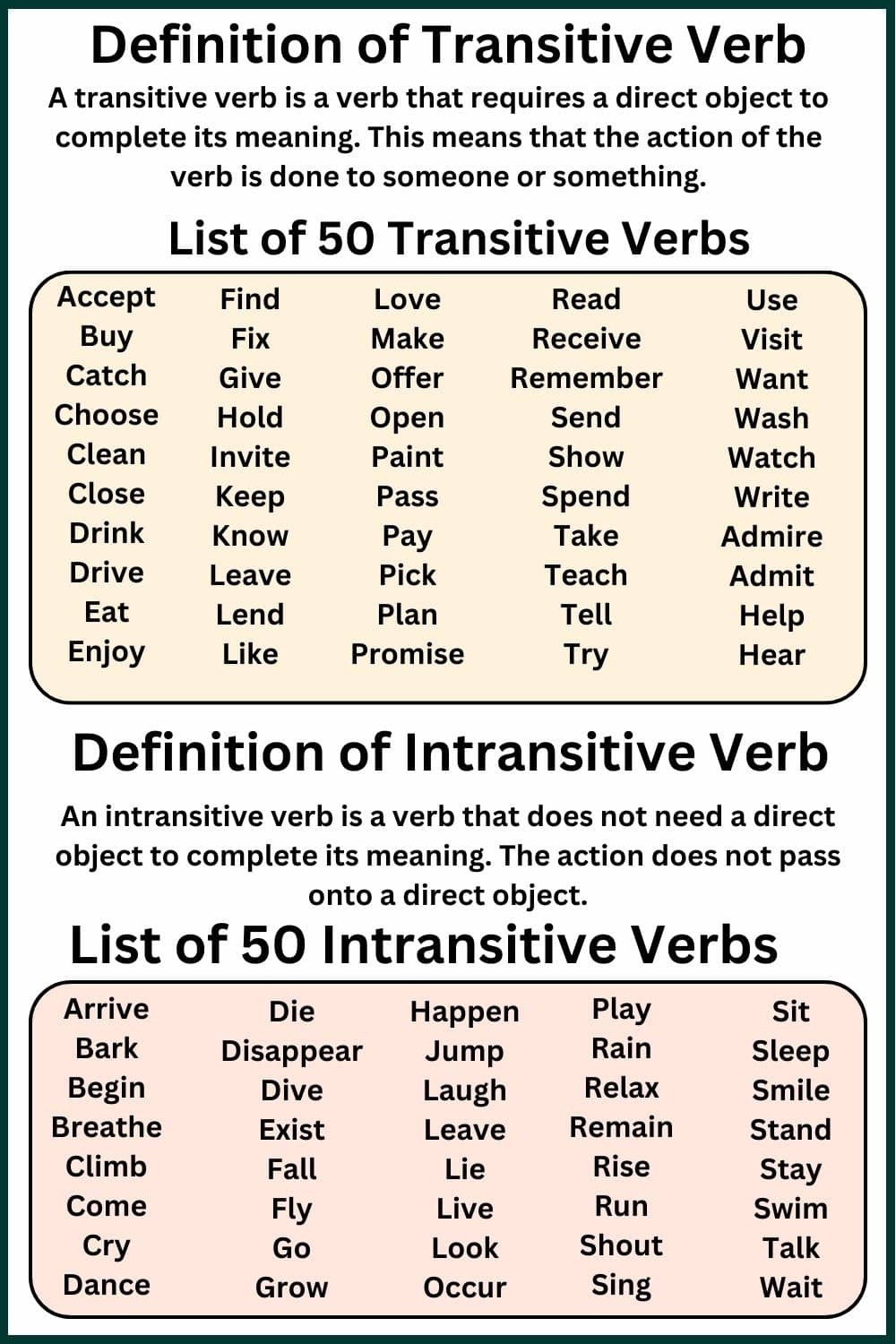Verbs are essential components of sentences, as they express actions or states of being. In English grammar, verbs can be classified into two main categories: transitive and intransitive verbs. Understanding the difference between these two types of verbs is crucial for constructing clear and meaningful sentences.
Transitive verbs require a direct object to complete their meaning, while intransitive verbs do not. This distinction plays a significant role in sentence structure and syntax, as it affects how verbs are used in context.
Transitive and Intransitive Verbs Definition
Transitive Verbs: Transitive verbs are action verbs that require a direct object to complete their meaning. The direct object is the receiver of the action performed by the verb. For example, in the sentence “She ate lunch,” the verb “ate” is transitive, and “lunch” is the direct object.
Intransitive Verbs: Intransitive verbs, on the other hand, do not require a direct object to complete their meaning. These verbs express actions or states that do not transfer to an object. For example, in the sentence “He sleeps peacefully,” the verb “sleeps” is intransitive, as there is no direct object receiving the action.
It is important to note that some verbs can be both transitive and intransitive, depending on how they are used in a sentence. For example, the verb “run” can be transitive when followed by a direct object (“She runs a marathon”) or intransitive when used without a direct object (“He runs every morning”).
Understanding the difference between transitive and intransitive verbs can help improve sentence clarity and structure. By identifying whether a verb requires a direct object or not, writers can ensure that their sentences are grammatically correct and convey the intended meaning effectively.
Overall, transitive and intransitive verbs play a crucial role in shaping the structure and meaning of sentences. By recognizing the distinction between these two types of verbs, writers can enhance their communication skills and create more coherent and impactful writing.
